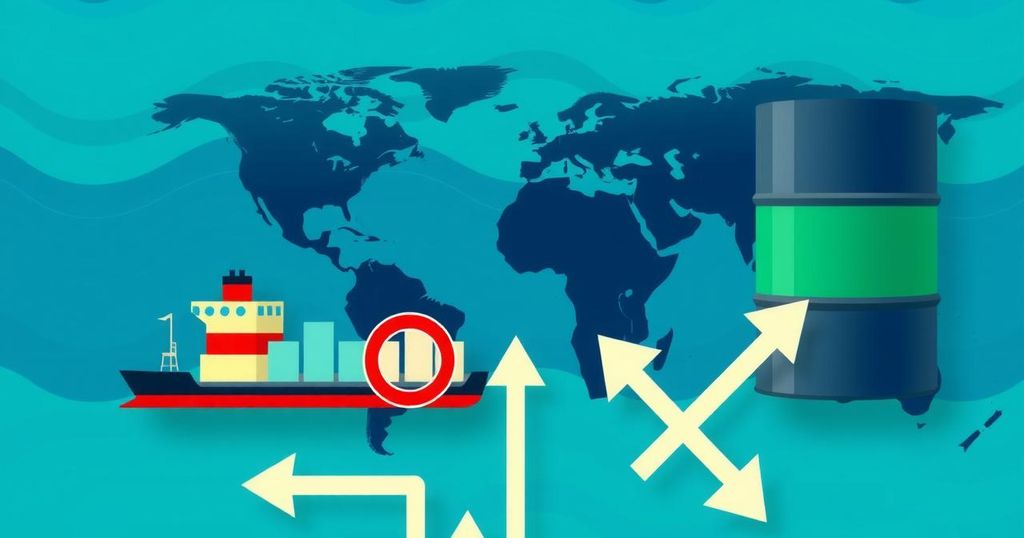Trump’s Tariffs on Venezuelan Oil: Implications for Global Trade and India

President Trump announced significant tariffs on countries buying Venezuelan oil and gas, effective April 2, with potential impacts on economies like China and India. These tariffs fit within his broader strategy of using economic measures to influence global trade dynamics.
US President Donald Trump announced on Monday steep tariffs on imports from countries that are buying oil and gas from Venezuela. Set to take effect on April 2, these 25 percent tariffs could significantly impact major economies like China and India, creating additional global trade uncertainty. Trump’s approach aims to influence economic and diplomatic policies through increased tariffs, targeting both allies and adversaries.
In his announcement on Truth Social, Trump emphasized his intention to enforce new tariffs, referring to the implementation date as “Liberation Day” for the US economy. The White House indicated that while broader tariffs were planned, more targeted levies might be employed as the situation evolves, promising reciprocal tariffs tailored for each trading partner.
Trump attributed these tariffs to various grievances, alleging that Venezuela has been deceptive and sent criminals to the US. Historical sanctions have previously allowed Venezuela to redirect exports to countries like China and India. His announcement follows recent tensions surrounding the deportation of Venezuelan nationals from the US, which were temporarily halted.
In addition to the tariffs on Venezuelan oil, Trump has signaled potential duties on imported automobiles, pharmaceuticals, and semiconductors, but the exact nature of these tariffs may shift according to negotiations. A White House spokesperson stated that final decisions regarding specific tariffs are still pending, emphasizing the fluidity of the situation.
Financial markets reacted positively to the prospect of a more focused tariff strategy, though uncertainty remains. Treasury Secretary Scott Bessent mentioned discussions with trading partners about existing trade imbalances, emphasizing that countries might mitigate the effects of tariffs by addressing unfair trade practices. This dynamic interaction outlines the growing complexity of international trade relations under Trump’s administration.
In summary, President Trump’s introduction of tariffs on countries purchasing Venezuelan oil marks a significant escalation in US trade policy, particularly affecting key players like China and India. The implementation of these tariffs on April 2 is part of a broader strategy to influence trade practices. The response from affected nations and evolving negotiations could redefine these economic interactions moving forward.
Original Source: www.hindustantimes.com







